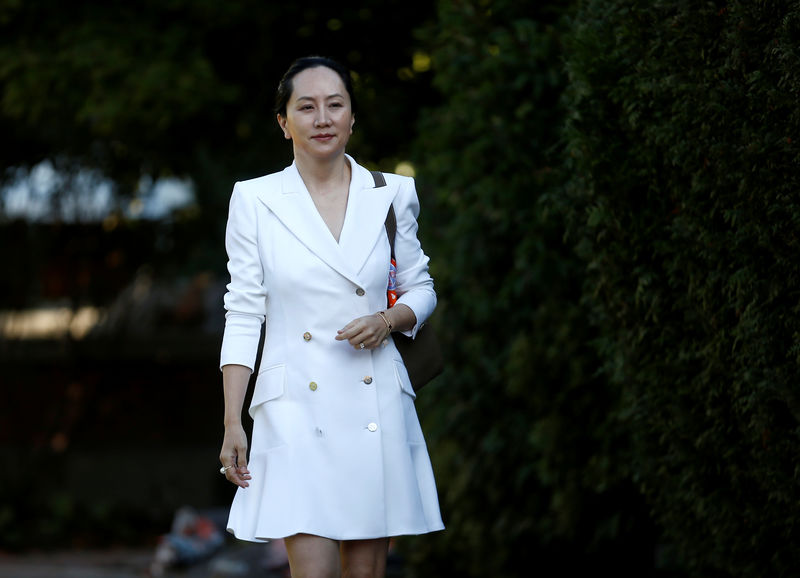By Moira Warburton
(Reuters) - Lawyers for Huawei Technologies Co Ltd asked a Canadian court to immediately stay proceedings seeking to extradite the company's Chief Financial Officer Meng Wanzhou to the United States, a company spokesman said on Wednesday.
Huawei spokesman Benjamin Howes said in an email that the company believes the extradition fails to meet the Canadian standard of double criminality.
The standard means the alleged conduct for which Meng was arrested in 2018 has to be illegal in both countries for her to be extradited.
Meng, 47, was arrested at the Vancouver International Airport on Dec. 1 at the request of the United States, where she is charged with bank fraud and accused of misleading the bank HSBC (L:HSBA) about Huawei Technologies' business in Iran. She has said she is innocent and is fighting extradition.
Howes said the company is arguing that because Canada did not have sanctions against Iran at the time Canadian officials authorized commencing with the extradition process, double criminality cannot be met.
The application "doesn't seek to challenge whether the facts behind the logic of this charge are true or not," Howes said, noting that the company would challenge this during a sufficiency hearing to be held in September 2020.
Canada's federal justice ministry was not immediately available for comment.
Meng's lawyers may have a sound argument, but it's premature, said Vancouver-based extradition lawyer Gary Botting who is not involved in the case.
"They're jumping the gun a bit, because the whole notion of a full extradition hearing is to determine whether or not there is dual criminality. The judge is bound to say, 'Hurry up and wait," Botting said.
Meng's arrest has strained China's relations with both the United States and Canada. China detained two Canadians - Michael Kovrig, a former Canadian diplomat, and businessman Michael Spavor - just days after Meng's arrest. Spavor and Kovrig are still being held in China, despite diplomatic efforts on Canada's part to get them released.
Meng's lawyers say the United States is using the CFO for economic and political gain, noting that after her arrest, U.S. President Donald Trump said he would intervene if it would help close a trade deal.
Meng, the daughter of Huawei founder Ren Zhengfei, spent 10 days in jail in December but was then released on C$10 million ($7.5 million) bail and is living in one of her two multi-million-dollar homes in Vancouver.
Meng and her lawyers returned to a British Columbia court last month, requesting additional documents pertaining to Meng's arrest at the Vancouver airport. Meng's argument is part of a broader strategy to prove that her arrest was illegal and violated her rights according to the Canadian Charter of Rights and Freedoms.
If Canadian officials abused their authority, her lawyers say, the extradition proceedings should be halted.

Her extradition hearing is set to begin on Jan. 20, 2020.